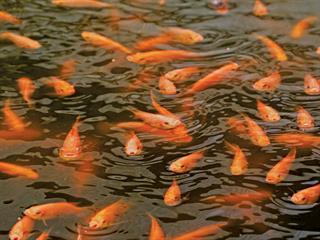
Legislation is the greatest impediment to the establishment of a warm-water aquaculture industry in South Africa. The current legal situation is unchanged from that of 20 years ago, so it is worthwhile examining whether the laws achieve their proclaimed aims.
Legislation controlling aquaculture falls under the auspices of many government departments, foremost of which are:
- The Department of Environmental Affairs (DEA);
- The Department of Agriculture, Forestry and Fisheries (DAFF);
- The Department of Water and Sanitation (DWA).
In my opinion, the DWA’s legislation is generally fair considering that ours is a water-scarce country. Water allocations for aquaculture have not surfaced as a serious impediment for projects over the last decade or so. Thirty years ago, aquaculture legislation fell almost entirely under the jurisdiction of the DEA. During subsequent years, pressure was put on government by user groups to move aquaculture away from conservation into the realm of agriculture, where it should be. Following this, however, very little has changed.
Restrictive regulations
While catches of both marine and freshwater feral fisheries are declining, and government claims it supports ‘an enabling environment’ for aquaculture, the DEA has produced increasingly obstructive legislation for the industry. It is an undeniable fact that, while large-scale commercial aquaculture is taking off in neighbouring countries, it is stagnating at home. This is almost exclusively due to the stranglehold the DEA has over the issuing of permits.
As it stands, the department has the legislative equivalent, in aquaculture, of telling a livestock farmer that he or she can farm unimproved strains of Nguni cattle, but no other breed. How long would the cattle industry survive if this were
the case? Yet we still have pure indigenous Nguni cattle in South Africa as well as introduced breeds.
Desirable candidate fish species such as Nile tilapia (Oreochromis niloticus), three-spot tilapia (O. andersoni) and trout, or any other successful species from Africa or Asia, are either banned for aquaculture purposes or require such a tortuous permitting procedure that investors simply don’t bother.
The process, under the well-intentioned guise of protecting our natural environment, requires risk assessments, complex applications, and about five months of waiting before consultation even begins. And it’s anyone’s guess when it concludes.
Legislation that does more harm than good
Do all these legalities protect the environment? Absolutely not. They drive the smaller operator to smuggle and exchange fish of dubious origin and the entire industry becomes unregulated, disorganised and chaotic. Many aquaculture beginners fail, and fish are dumped into water bodies, creating the exact situation that the legislation was designed to prevent.
To insist that the permitting process must take 60 working days (four months, in reality) before it even starts, simply drives all but the most law-abiding individuals underground. Despite this happening time and time again, the staff of these government departments – often highly qualified scientists – never seem to learn that if legislation is inefficient or unenforceable, it is counter-productive and should be dumped.
The DEA should be entirely removed from its veto position in aquaculture, except in the special cases of reserves and parks. If this sounds simplistic to you, realistically ask yourself if the current situation is achieving anything constructive.








